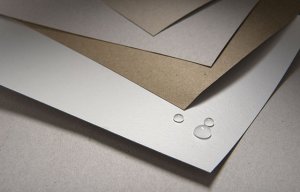
OrganoClick and BAUX sign collaboration agreement
FibeRio Technology Corporation, the developer and manufacturer of Forcespinning nanofibre production systems, has been named in the prestigious 2013 Global Cleantech 100 list, produced by Cleantech Group, a global market intelligence and consulting firm. The Global Cleantech 100 list is derived from Cleantech Group’s own data and research. This year nearly six thousand companies from 60 countries were nominated. “FibeRio being highlighted as one of the top 100 private clean technology companies listed under Cleantech 100 is an endorsement of our company’s efforts to help our customers reach both their financial goals and their strategic sustainability initiatives. Moreover, it will help open new markets and enable new applications,” commented Ellery Buchanan, CEO of FibeRio.

15th October 2013
Innovation in Textiles
|
McAllen, TX
FibeRio Technology Corporation, the developer and manufacturer of Forcespinning nanofibre production systems, has been named in the prestigious 2013 Global Cleantech 100 list, produced by Cleantech Group, a global market intelligence and consulting firm.
The Global Cleantech 100 list is derived from Cleantech Group’s own data and research. This year nearly six thousand companies from 60 countries were nominated.
“FibeRio being highlighted as one of the top 100 private clean technology companies listed under Cleantech 100 is an endorsement of our company’s efforts to help our customers reach both their financial goals and their strategic sustainability initiatives. Moreover, it will help open new markets and enable new applications,” commented Ellery Buchanan, CEO of FibeRio.
Forcespinning is a disruptive platform technology, which is said to enable leading manufacturers to produce nanofibres on a commercial scale in a cost effective way using a wide range of polymers and an environmentally sensitive process.
Nanofibre applications include markets like filtration, nonwovens, battery separators, textiles, biomedical and conductive materials.
Nanofibers’ higher surface area and smaller pore size are said to improve the characteristics of fibrous material, enabling performance levels in any given application to be matched or improved using significantly less material in the end product. This also allows for lighter weight and lower cost, the company reports.
According to the company, previous methods of production were not scalable and required massive amounts of environmentally harmful solvents, which limited the commercialisation of nanofibre materials.
FibeRio’s Forcespinning technology is capable of both melt and solution spinning nanofibres. This is said to provide a more sustainable method of production because melt spinning does not require solvents.

Business intelligence for the fibre, textiles and apparel industries: technologies, innovations, markets, investments, trade policy, sourcing, strategy...
Find out more